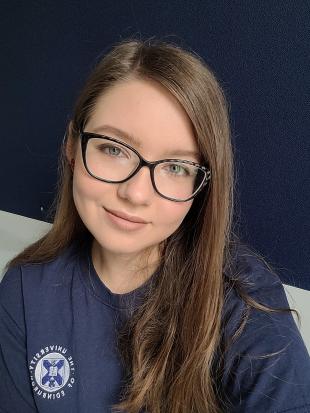What attracted you to the University of Edinburgh and this programme, in particular?
The University of Edinburgh attracted me because of its high position in rankings and world recognition. Additionally, I had visited Edinburgh before, and absolutely loved this city. Chemical engineering sparked my interest because I was always interested in maths and chemistry. I wanted to study a degree that enabled me to have a real impact on our world.
What do you wish you'd worried about less about coming to university?
I wish I would worried less about language. Coming to university was my first time studying in English and I was really worried that I would have problems with understanding lectures. In reality, I did not have many issues with transitioning to studying in English.
Any student wisdom you'd like to pass on?
Don’t worry about marks! Marking at university works different than in high school. You need to get used to university expectations.
What aspects of student life do you enjoy the most and why?
I enjoy meeting lots of new people the most. At university you always meet some interesting people, either at your courses, in accommodation, societies or sport clubs.
What do you most like about studying here?
I really like that we have good relationships with lecturers. I appreciate that we can come to their office for surgery hours and ask for help or just simply have a chat.
What do you find most challenging and most rewarding about your programme?
The most challenging thing is keeping up with everything. There is always something to do, so good time management is crucial. However, the most rewarding is the moment when you finish your design project, and you are proud of it.
What is your favourite course so far and why?
My favourite course so far is "Heat, Mass and Momentum Transfer 3". It is challenging, but a well taught course, one of the core courses in Chemical Engineering. It builds a good base for design projects and future courses.
How would you describe the practical elements of the programme?
Chemical Engineering does not have that many practical elements. The most important is Chemical Engineering Laboratory 3 in which we learn how to conduct experiments, but also how to write a laboratory report and preform data and error analysis.
How is your programme equipping you for your future career?
The Chemical Engineering programme at Edinburgh is accredited by IChemE. The Integrated Masters programme offers a 6-month placement or research project which is an amazing opportunity to apply skills and theory into practise. Moreover, the School of Engineering offers variety of summer internships, which give a good start to your future career.



